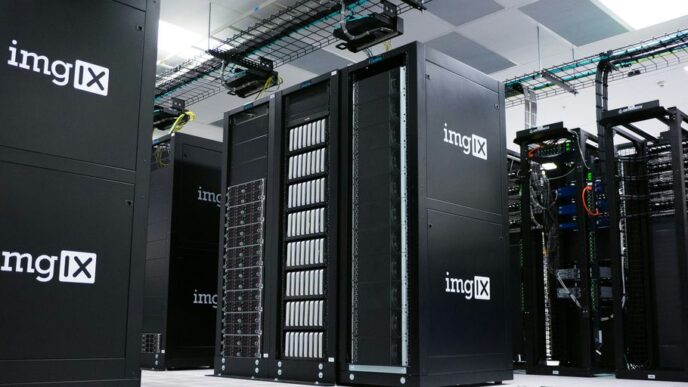In a world where climate change is an increasingly urgent issue, it is crucial for us to work towards a greener future. Electric cars have emerged as a promising solution, offering a cleaner mode of transportation and significant environmental benefits. This article explores the pivotal role of electric cars in combating climate change and how they are paving the way for a more sustainable tomorrow.
Introduction to Electric Vehicles:
As the world recognizes the need to combat climate change, many individuals are seeking ways to reduce their carbon footprint. Electric vehicles (EVs) provide numerous advantages over traditional gasoline-powered cars, including lower emissions, reduced operating costs, and increased efficiency.
EVs produce zero emissions, contributing to improved air quality and combating climate change. Unlike gasoline-powered cars, they do not release tailpipe emissions that pollute the environment. Moreover, EVs are more energy-efficient, resulting in lower operating costs and fewer visits to the gas station.
While EVs offer significant advantages, there are still challenges to address. The initial cost of an EV may be higher compared to a gasoline-powered car, and charging an EV can take longer than refueling a gas tank. However, as battery technology continues to advance and charging infrastructure expands, these challenges are becoming less significant.
Advantages of Electric Cars vs. Fossil Fuel Cars:
Electric cars possess numerous advantages over fossil fuel cars, including higher efficiency, zero emissions, and a smaller environmental impact.
Electric cars are more efficient as they convert a higher percentage of energy from the battery into motion. Gasoline engines typically convert only about 20% of fuel energy into motion, whereas electric motors can convert up to 80% of battery energy into motion. Consequently, electric cars require less energy to travel the same distance as gas cars.
In terms of emissions, electric cars produce zero tailpipe emissions, which reduces air pollution and smog. On the other hand, fossil fuel cars release harmful pollutants such as carbon dioxide and nitrogen oxide into the atmosphere.
The environmental impact of electric cars is significantly lower than that of gas cars. Electric vehicles do not rely on oil or gas, eliminating contributions to oil spills and fracking. Furthermore, their absence of emissions helps combat climate change.
New Battery Technology and Its Role in Combating Climate Change:
As the world acknowledges the urgency of addressing climate change, new technologies are being developed to aid in this endeavor. One such technology is new battery technology, which plays a crucial role in the advancement of electric cars.
Electric cars offer a highly efficient and cost-effective mode of transportation, emitting no pollutants and utilizing cheaper electricity instead of fuel. Consequently, electric cars are regarded as a key component in the fight against climate change.
New battery technology enhances the efficiency and affordability of electric cars. The latest generation of batteries is lighter, smaller, and more cost-effective to produce. Moreover, these batteries store more energy, enabling electric cars to travel longer distances on a single charge. This development is significant as it addresses the issue of “range anxiety,” a barrier to wider adoption of electric cars.
Improved efficiency and range, thanks to new battery technology, make electric cars a more feasible choice for consumers and businesses alike. As electric cars gain popularity, their role in combatting climate change will become increasingly important.
Government Incentives for Electric Car Purchases:
The popularity of electric cars is growing as consumers seek out more environmentally friendly vehicles. Governments worldwide are introducing various incentives to encourage electric car purchases, including tax breaks, subsidies, and investments in charging infrastructure.
In the United States, the federal government provides a tax credit of up to $7,500 for purchasing an electric car. Several states also offer their incentives, such as California’s Clean Vehicle Rebate Program, which provides up to $5,000 in rebates for eligible electric car purchases.
The UK government offers a subsidy of up to £3,500 through its Plug-in Car Grant program, available to both private individuals and businesses.
The Chinese government has made substantial investments in electric car infrastructure and offers subsidies and tax breaks to promote electric car purchases. In 2018, the government announced plans to provide subsidies of up to RMB 60,000 (US$9,000) per vehicle for new energy vehicle purchases, which includes electric cars.
Other countries also provide incentives for electric car purchases. For instance, Norway exempts electric cars from all taxes and fees related to ownership and operation. These incentives contribute to making electric cars more affordable and play a role in reducing emissions from transportation, thus combatting climate change.
Challenges Facing the Growth of Electric Vehicles:
As the world seeks to address climate change, electric vehicles (EVs) have been identified as a crucial part of the solution. EVs emit significantly fewer greenhouse gases compared to traditional gasoline-powered cars, with emissions continuing to decline as the electricity grid decarbonizes.
However, EVs still face several challenges before they can become the dominant force in transportation. Firstly, the upfront cost of an EV remains relatively high compared to a gasoline car, primarily due to the higher cost of batteries and other EV components.
Secondly, charging infrastructure poses a significant obstacle to widespread EV adoption. To encourage individuals to switch to EVs, they must have confidence in finding convenient charging locations when needed. Unfortunately, public charging infrastructure lags behind in many parts of the world.
Consumer awareness and understanding of EVs also remain relatively low. Many people are still unfamiliar with how EVs function and the benefits they offer. Raising awareness and knowledge is essential for mainstream adoption of EVs.
Impact of Electric Vehicles on the Environment:
Electric vehicles offer several advantages over traditional petrol and diesel cars, particularly in terms of their environmental impact.
Firstly, electric cars produce zero emissions, contributing to improved air quality and a reduction in climate change. In contrast, petrol and diesel cars emit pollutants linked to health issues such as heart and lung diseases.
Secondly, electric cars are more energy-efficient than traditional petrol and diesel cars, resulting in a lower carbon footprint. Additionally, electric cars do not require oil changes or generate routine maintenance waste that can pollute the environment.
Electric cars also tend to have a longer lifespan than traditional petrol and diesel cars, resulting in less waste over time. Furthermore, when electric cars reach the end of their lifespan, their batteries can be recycled, further reducing their environmental impact.
The Future of Sustainable Transportation:
As urbanization continues to accelerate worldwide, transportation needs are on the rise. By 2050, it is estimated that 66% of the global population will live in cities [1]. This poses challenges for sustainable transportation, as cities are already grappling with traffic congestion, air pollution, and limited resources.
Electric cars provide a clean and efficient solution to these problems. They emit no pollutants and have the potential to significantly reduce greenhouse gas emissions. Furthermore, electric cars are more energy-efficient than gasoline-powered cars, resulting in reduced energy consumption and waste production.
While challenges exist for electric cars, such as higher costs and limited charging infrastructure, advancements in battery technology and charging networks are making electric cars increasingly viable for sustainable transportation.
Conclusion:
Electric cars offer a viable solution for reducing emissions and combating climate change while providing an enjoyable driving experience. The rapidly advancing technology is making electric cars more affordable and accessible. It is crucial for us to take the necessary steps toward a greener future by embracing electric vehicles and supporting initiatives that promote sustainability. With collective efforts, we can build a better tomorrow and preserve the environment.













